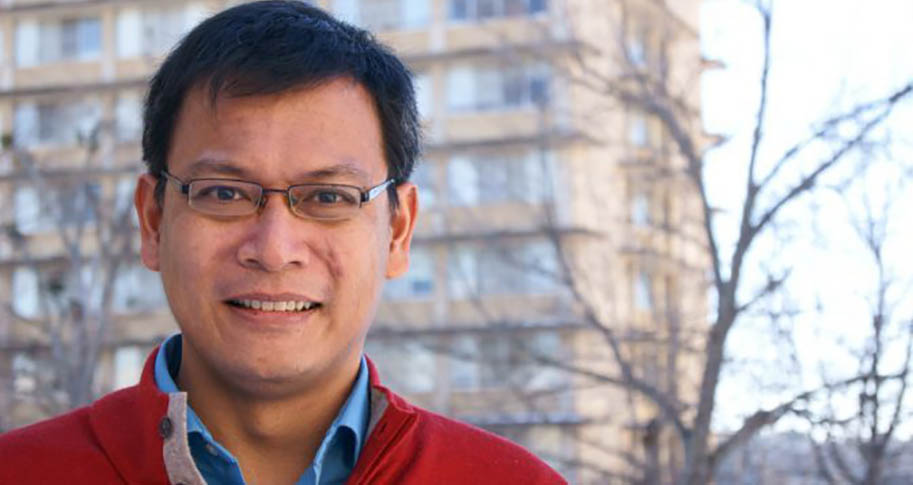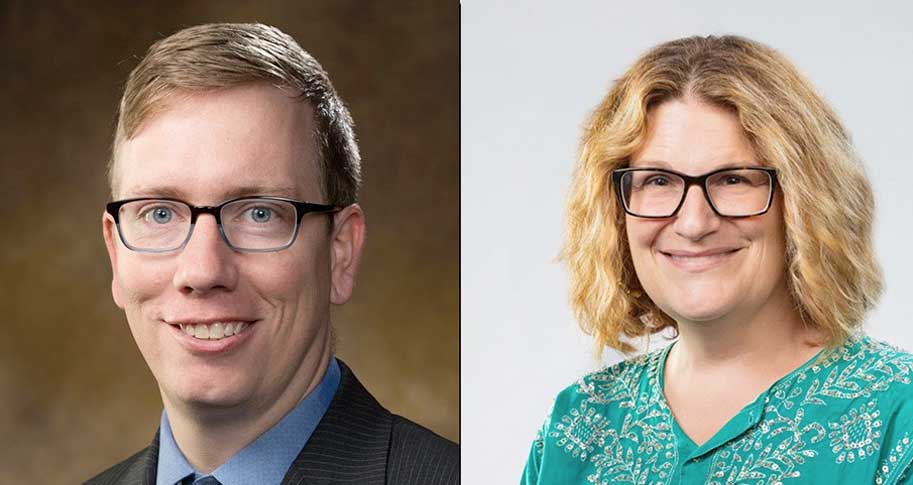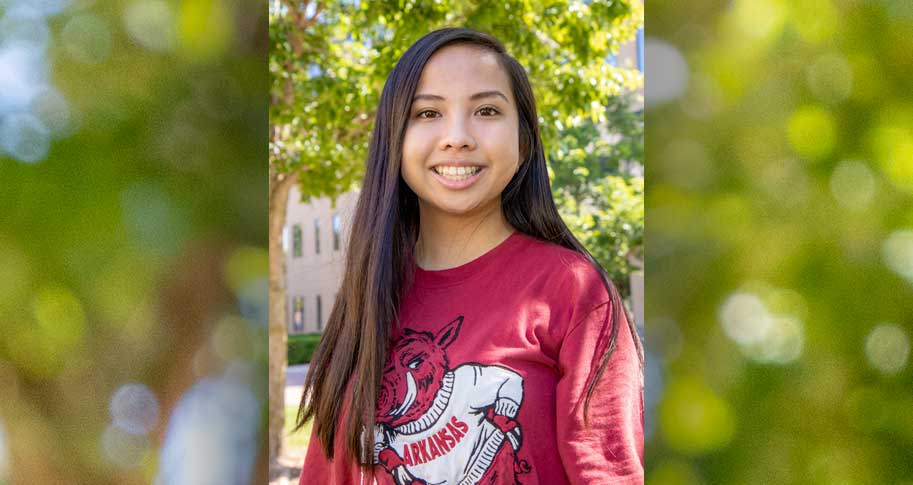
Since then, Gaduh has used his native country of Indonesia in his research to better communities’ quality of life, whether it be improving a village’s educational system or understanding how religion influences trust between individuals. “In general, I’m interested in how the development process works,” he says.
Gaduh brings his knowledge and research to the Sam M. Walton College of Business, where he began his duties in August as assistant professor for the Department of Economics. He has combined his computer science knowledge with economics by teaching a graduate-level course in econometrics–the use of using mathematical models, such as statistics, in describing economic systems. He also teaches an undergraduate course called Economic Development, Poverty, and the Role of the World Bank and IMF in Low-Income Countries as well as a graduate level international development course.
Gaduh, who earned his Ph.D. at the University of Southern California, says he found the University of Arkansas an attractive place to work for many reasons, including the Walton College’s Behavioral Business Research Lab, the economics department’s interest in international economic development research “and it’s such a nice place.”
He was pleased to learn his research interests overlap with several other Walton College faculty members, which presents opportunities for collaboration. He also enjoys teaching here. “The students are sharp and highly motivated,” he says.
Gaduh transitioned from computer science into the economics field by earning a graduate diploma and a master in philosophy followed by a Ph.D. in the concentration in 2013. During that time, he began defining his research interests.
For example, he says he wanted to look at ways to improve public education in Indonesia by getting parents involved. In a project developed by the World Bank and the Indonesian Ministry of National Education, he and his fellow researchers evaluated a pilot program to empower parent-teacher associations in rural villages in Indonesia.
Empowering these associations, when coupled with efforts to involve village leaders, led to improvements in learning outcomes, he says. For instance, in one village, parents successfully proposed a village-mandated curfew for students. He says parental involvement appears to improve education there and the Indonesian government is looking at implementing a similar program on a larger scale.
Gaduh also researches religious identity and how it affects the trusts between strangers of different faiths. He says his research indicates people have a greater trust with those within their religions and are less accepting of those who are not.
As Gaduh continues his teaching and research, he says he’s happy to be at the Walton College–a place where can fulfill his goal in making a difference.




